Civilization II: Test Of Time
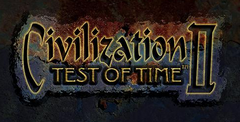
| a game by | Microprose |
| Platform: | PC (1999) |
| Editor Rating: | 6.5/10, based on 1 review |
| User Rating: | 9.0/10 - 2 votes |
| Rate this game: | |
| See also: | Civilization Games |
After several reappearances in the budget racks, those all-time classic strategy games Civilization I and II seem to have spawned new offspring. Unfortunately, with each one being 'fathered' by a different developer, choosing the right revamp can prove difficult.
Sid Meier's Alpha Centauri just pipped Activision's Civilization: Call to Power in our book, but they're both hard acts for the new Hasbro-owned MicroProse entry Civilization II: Test Of Time to follow. And just to muddy the waters, there's some doubt as to whether Test Of Time is third-generation offspring at all.
Okay, it's got 16-bit colour, animated units and terrain, but everything else will be very familiar to long-time C-fans. The scientific advances and city improvements are much the same - at least they are in the normal game - and even the short-cut keys haven't changed.
On the other hand, you could argue that the chance to colonise up to four different but linked worlds at the same time makes it many times more challenging on a strategic level, while the optional fantasy and sci-fi 'flavours' offer something pretty new. Then again, anyone familiar with the official add-on pack Civ II: Fantastic Worlds will have seen at least some of that before.
In MicroProse's own words, Civil: TOW "improves and expands on a beloved classic", which is probably all it needs to encourage Civ die-hards to promptly leg it down to their local software store - they'll certainly get their full CD's worth.
When Seven Tribes Co To War
In TOT, the traditional game puts you in charge of one of seven tribes battling for world supremacy or the way to the stars via Alpha Centauri. You must build, expand and enrich your way to the top, using diplomacy, spot-on scientific research or sheer military might to get there. It's the same game again in the sci-fi and fantasy versions, except that the terrain, the wonders, the improvements and the units are all different. Different enough to make you stop and think very hard, on occasion.
In sci-fi mode, the technologies - adaptive farming and aerology, for example - sound pretty complex, but it soon becomes clear that they correspond closely to traditional Civ advances. There are new twists though: your aim is to build a new spaceship to take you home again, but not every scientific advance is available to everyone, so you must steal or trade certain technologies in order to construct it. When you do get access to space flight, you can expand your battle to another planet and an asteroid, all with different terrain and resources. And lots of monsters.
Fantasy-wise, you get four worlds to play on - earth, air, undersea and underground - and all are linked by magic portals, caves and tunnels. You play one of seven fantasy races in the battle to colonise and dominate all four of them. Races include your 'normal' humans, elves and goblins, as well as Stygians (undead), Merfolk (an underwater race) or the flying Buteos. There's even a Mindgard scenario in which you battle to save the world and put together a giant siege engine before the Dark Lord awakens. To do that you must carry out a dozen linked quests too, which adds extra spice as you still have to manage your civilisation at the same time.
The extended game is much like the normal one, except that when you do build the spaceship that would have won you the game and taken you away from Earth, there's a lot more work to do - like take over yet another planet, a gas giant, the odd star systems, and battle an alien race. The objective is to get back to Earth by building a faster-than-light spaceship (Impossible in reality, of course - Science Ed). Yes, we're talking a lot of gaming hours here.
Ch ch ch ch Changes
There have been gameplay tweaks along the way too. Advanced settlers and engineers can no longer ignore zones of control and build cities in your territory. They can also be automated to improve the city squares without human input.
One or two attack ratings have changed, and there's a new concept of impassable terrain for land units to struggle with. All the changes are covered in the manual and the comprehensive Civilopedia, although the latter is a little disappointing in its bland approach and heavy use of text.
There's a lot more depth and interest in the various end games, too, particularly in the extended, fantasy and sci-fi games, where winning isn't as easy as it looks and a gung-ho bloodbath won't do you any favours. The diplomatic and exploration/build AI is much improved, and enemy units seem to spend far less time marching pointlessly backwards and forwards. Unfortunately they still do the same dumb things in combat, like piling multiple units into one square to be knocked off by the next heavy unit to come along (if one unit loses a combat all the others in the square are wiped out too).
The multiplayer element is now embedded neatly into the main game, rather than bolted on as an added extra as it was before. You can play across the Internet, a LAN, null modem serial cable or even via a rather dubious hot seat. While your opponents are moving their pieces, you can micro-manage your cities and overall strategies, instruct diplomats, determine caravans and so on. This helps blend the play smoothly so that you don't feel you're hanging around waiting for a slow opponent. In any case, the host can specify a minimum turn time and a few other things.
So is it all good news for Hasbro and MicroProse? Not really. As well as one or two obvious omissions, TOT is let down by the new 16-bit animated graphics that don't quite come off, especially at high zoom levels and in worlds where there's a wide range of terrain types and tile improvements. Throw in the expanded number of units on top of some downright weird terrain types, and recognition can get very awkward at times. The most astonishing omission is that there's no build queue, which one might have thought was an essential feature by now. Just to rub salt in, there's no map or scenario editor either, although TOT will load maps from the earlier version of Civ 2. So what have we got here - Civ 2 with knobs on, or a third-generation upgrade of one of the world's best-known strategy games? It matters not a jot, even for existing Civ II owners. The game's new features, updated animations and graphics, and the extra worlds and scenarios make it still a timeless choice for turn-based strategy fans. Faults or not, it's different but it's still Civ.
Download Civilization II: Test Of Time

System requirements:
- PC compatible
- Operating systems: Windows 10/Windows 8/Windows 7/2000/Vista/WinXP
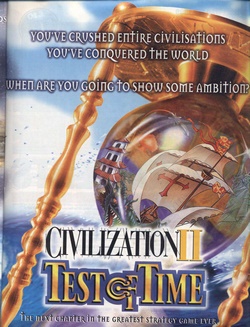
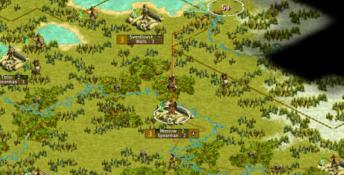
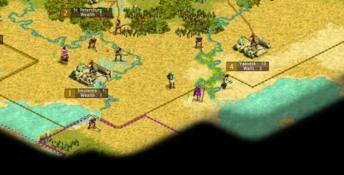
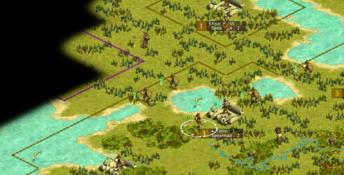
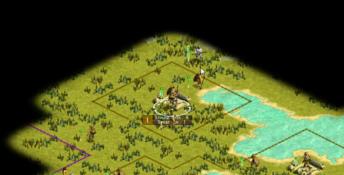
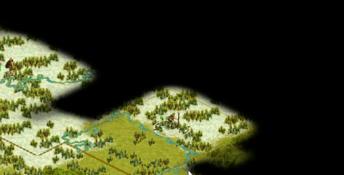
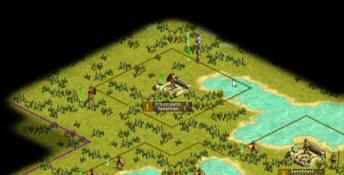

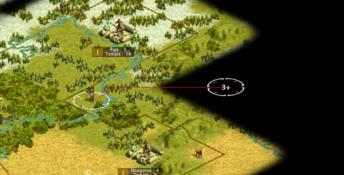
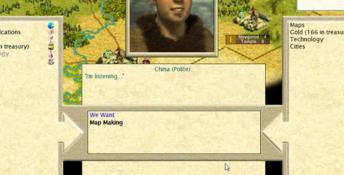
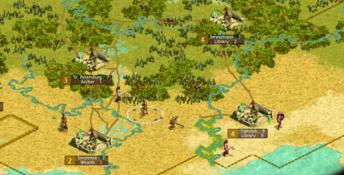
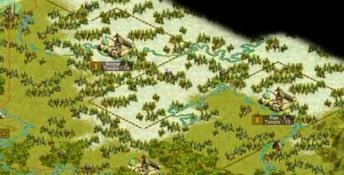
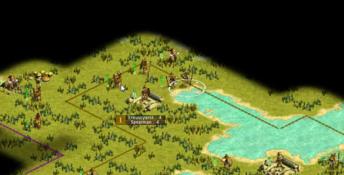
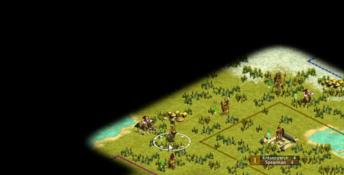

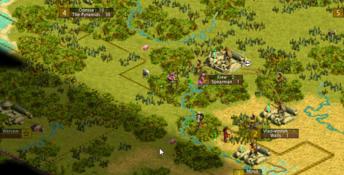
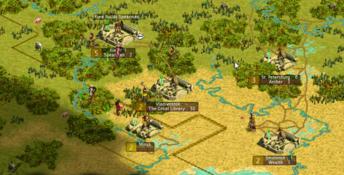
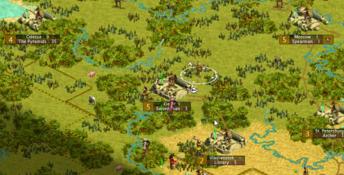
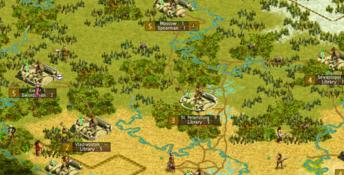
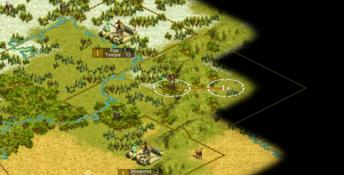
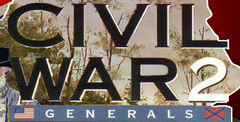 Civil War Generals 2: Grant, Lee, Sherman
Civil War Generals 2: Grant, Lee, Sherman
 Civilization
Civilization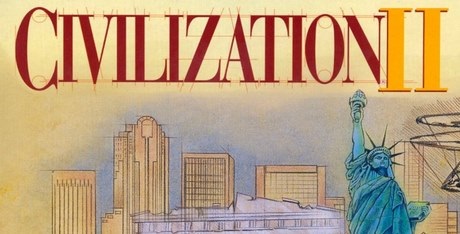 Sid Meier's Civilization II
Sid Meier's Civilization II
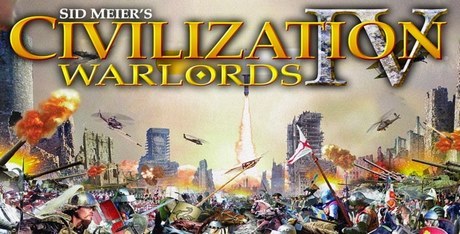 Sid Meier's Civilization IV: Warlords
Sid Meier's Civilization IV: Warlords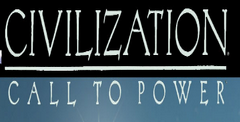 Civilization: Call to Power
Civilization: Call to Power
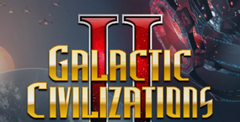 Galactic Civilizations II: Dread Lords
Galactic Civilizations II: Dread Lords